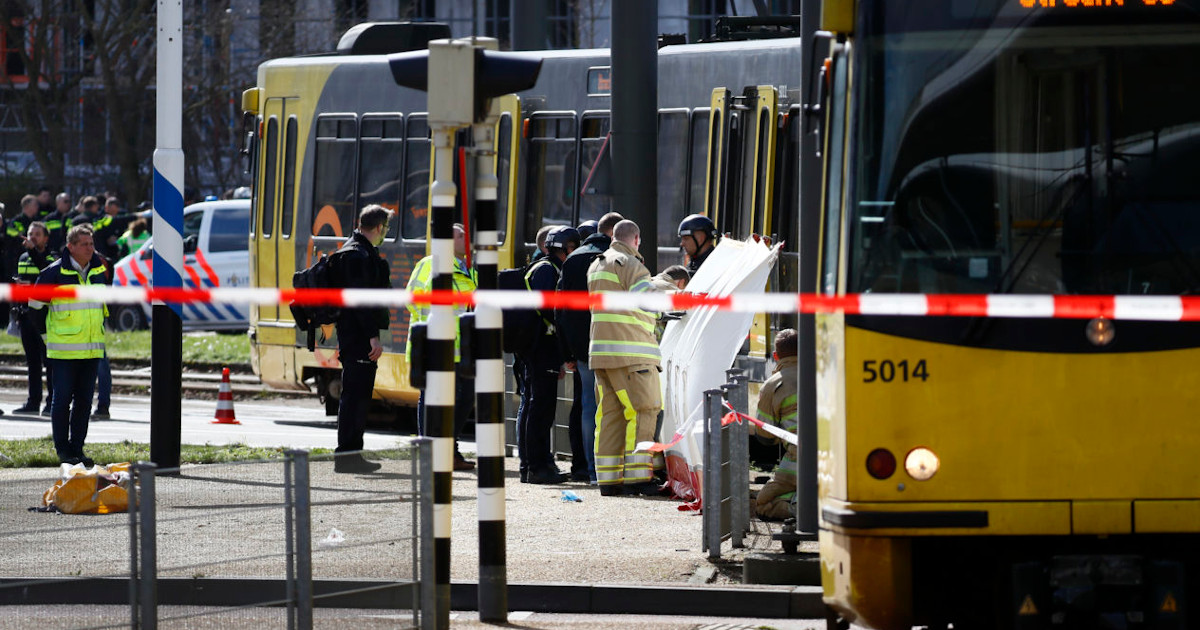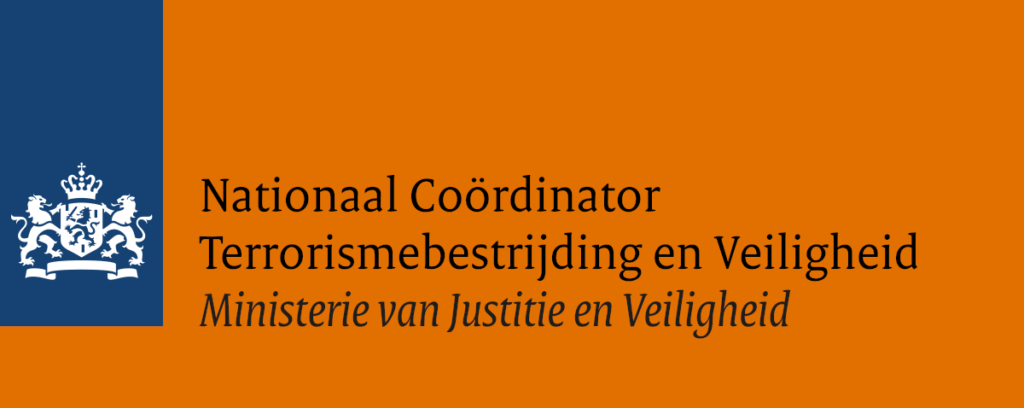Language:

What Makes an Attack Extremist or Terrorist?
Source photo: Google, attack Utrecht March 18th, 2019
Attacks that are suspected to have an extremist or terrorist motive often receive a great deal of attention in the news. Such attacks generally attract more and more intense coverage than other news events. For example, think of stabbings or incidents where a car is driven into a crowd—events that have frequently made headlines in recent times.
Certain factors linked to an attack often raise suspicions that it is a terrorist or extremist act. The most common factor is when the perpetrator has a background associated with the Middle East, which tends to be emphasized in news reports. In some cases, the type of attack also plays a role; for instance, attacks in which a vehicle is driven into a crowd are often immediately linked to terrorist violence, such as the attack at the Berlin Christmas market in 2016. These factors, even when the motive has not yet been confirmed, often lead to rapid public perception that the attack is extremist or terrorist in nature.
The Influence of Media and Public Perception
In this blog, I do not wish to discuss why certain attacks do or do not make the news. However, it is important to realize that news and other media coverage have a significant impact on public perception. Don’t get me wrong: any attack, in any form, is one too many. At the same time, it is crucial that someone is punished for what they have actually done, not merely based on collective judgment in society.
Some news outlets try to limit the influence of public perception by disabling the option to comment on news articles. In the past, it has become clear that comments are sometimes posted thoughtlessly, with some even being criminal due to racist content. More importantly, suspects are often publicly condemned before a judge has made a ruling. This phenomenon is also known as ‘trial by media,’ where someone is already seen as guilty by society, even though the formal legal process is still ongoing.

Legal Assessment and the Role of the NCTV
The way an attack is portrayed in the media is beyond my control and is not something I can or want to change with this blog. Whether an attack can truly be classified as extremist or terrorist is ultimately up to the courts to decide. In the period before a judicial verdict, many details and developments often appear in the news, but this information does not yet constitute a formal assessment. With this blog, I mainly want to offer insights and background information so that, as a news consumer, you can base your opinion on facts rather than impressions or emotions.
The central question I want to answer in this blog is: when do we really speak of an extremist or terrorist attack? In the Netherlands, there is a government body that deals with these issues on a daily basis: the NCTV. The abbreviation NCTV stands for National Coordinator for Counterterrorism and Security. This organization is part of the Dutch government and is responsible for coordinating policy on counterterrorism, extremism, cybersecurity, and crisis management. The NCTV analyzes threats, advises the government, works with police, intelligence services, and international partners, and ensures that the Netherlands remains resilient to various security risks. Additionally, the NCTV develops policies, produces threat reports, and coordinates measures to protect society from different forms of extremism and terrorism.
To determine when an attack is classified as extremist or terrorist, it is important that there are clear and consistent definitions. Thanks to these definitions, government agencies, police, the judiciary, and the media can assess whether an event falls within these categories in a uniform way. Without clear descriptions, terms like ‘terrorism’ and ‘extremism’ would be open to too much interpretation, which could lead to confusion or even misuse of these terms. That is why we now look at the official definitions of terrorism and extremism as established by the NCTV.
The Official Definitions: Terrorism and Extremism
What Is Terrorism According to the NCTV?
The NCTV uses the following definition of terrorism:
“Terrorism is the threatening with, preparing for, or committing of serious violence against people, or acts aimed at causing socially disruptive damage to property, out of ideological motives, with the aim of effecting social change, instilling serious fear in the population, or influencing political decision-making.”
This definition highlights three key elements:
- The ideological motive: Terrorism is always committed from a conviction, such as political, religious, or other ideological beliefs.
- Serious violence or socially disruptive damage: These are acts directly targeting people or acts that disrupt society as a whole, such as large-scale destruction.
- The objective: Sowing fear, forcing social change, or influencing political decision-making.
A concrete example of terrorism is the tram attack in Utrecht in 2019, where a perpetrator opened fire on random civilians with the aim of spreading fear and possibly acting from a political or religious motive. The Paris attacks in 2015, where violence was committed at various locations, also illustrate how terrorism not only creates victims but primarily aims to impact society as a whole. The strategic use of fear as a weapon and the pursuit of social or political change are characteristic here.
What Is Extremism According to the NCTV?
The NCTV defines extremism as follows:
“Extremism is the willingness, out of ideological motives, to undertake non-violent and/or violent activities that undermine the democratic legal order.”
This definition centers on the following aspects:
- Ideological motive: Like terrorism, extremism is based on a particular worldview or conviction, not on personal, criminal, or financial motives.
- Willingness to act: It concerns the intention to undermine the democratic legal order through activities—violent or non-violent.
- Undermining the democratic legal order: This can include spreading hate, delegitimizing the rule of law, establishing parallel institutions, or inciting violence.
Extremism can manifest in violent acts, such as physically threatening politicians or journalists, but also in non-violent forms. Think of the systematic spreading of extremist theories, inciting hatred, or disseminating disinformation. For example, a group that uses social media to call for the boycott or discrimination of certain population groups, or to normalize hostile images. Inciting violence against government institutions or political opponents, as sometimes seen in far-left or far-right demonstrations, also falls under this. Extremism thus forms a breeding ground for radicalization and can, in some cases, escalate into terrorist violence, but at its core, it also includes ideological struggle without direct physical violence.
From Definition to Legal Practice
The definitions of terrorism and extremism, as described above, form the basis for police and the judiciary when assessing attacks. These definitions are not only guiding for public debate but, more importantly, for the criminal justice approach. They provide police and the Public Prosecution Service (OM) with a framework to determine when someone can be arrested, formally charged, and ultimately brought before a judge on suspicion of extremism or terrorism.
In practice, the legal provisions regarding terrorism and extremism are more detailed than the concise definitions used by the NCTV. The Dutch Penal Code contains specific articles that describe terrorism and related offenses. These include articles on committing terrorist offenses, preparing or facilitating them, and participating in or supporting a terrorist organization. There are also provisions that criminalize incitement to hatred, violence, or discrimination, which often falls under extremism. This legislation has been tightened several times in recent decades, partly due to international treaties and the changing nature of threats.
It is the responsibility of the public prosecutor to carefully gather and present the incriminating facts to the judge based on the police investigation. This means that the prosecution not only looks at the act itself but also at the motive, preparation, and context in which the attack took place. The public prosecutor must demonstrate that there is a terrorist or extremist motive, for example by presenting statements, manifestos, communications with like-minded individuals, or other indications of ideological drivers.
The judge then determines whether the facts and motive have been sufficiently proven to result in a conviction for terrorism or extremism. This is a careful process, in which not only the letter of the law but also case law and international guidelines are considered. The Netherlands is bound by international agreements, such as the European Convention on Human Rights, and works with countries within the European Union and beyond to effectively combat terrorism and extremism.
It is important to emphasize that the criminal justice approach to terrorism and extremism in the Netherlands is strongly rooted in the rule of law. Suspects have the right to a fair trial, legal counsel, and the right to defend themselves against the accusations. The judge is independent and must base their decision on the evidence presented during the trial. Only when the motive and facts have been unequivocally established can there be a conviction.
In addition to the criminal justice approach, the government also focuses on prevention and deradicalization. Municipalities, schools, and social organizations work together to recognize signs of radicalization at an early stage and to make young people more resilient to extremist influences. The NCTV plays a coordinating role in this and supports local initiatives with knowledge, training, and resources.
In summary, the legal definitions of terrorism and extremism form the foundation for tackling these serious crimes in the Netherlands. They provide guidance to police, the judiciary, and judges, but also ensure that every suspect receives a fair trial. At the same time, it remains important for society to stay alert and critical, so that we not only respond to attacks but also work towards a resilient and just society.
Polarization, Forming Opinions, and Your Own Role
It is important to emphasize once again that the legal process surrounding suspicions of extremism or terrorism in the Netherlands is extremely thorough. The safeguards of the rule of law are there for a reason: they protect both society and the individual against hasty conclusions and wrongful convictions. In practice, however, public opinion about an attack is often formed very quickly, sometimes even before all the facts are known or a judge has considered the case.
Polarization plays an increasingly significant role in this rapid opinion formation. Polarization means that groups of people come to stand in opposition to each other, often by magnifying differences or emphasizing distinctions rather than similarities. In the debate on extremism and terrorism, this is evident when people immediately judge a suspect based on their background, religion, or the type of attack, without knowing the full context or legal facts. This can lead to greater division in society, distrust towards certain groups, and the reinforcement of stereotypes.
Countering polarization starts with yourself. It is tempting, fueled by emotions or the tone of news reports, to quickly form a judgment about an attack or a suspect. But it is precisely in these situations that it is important to focus on the facts as they are known and to withhold judgment until more information is available. Not only should you pay attention to what appears in the media, but you should also compare that information with the official definitions of extremism and terrorism. These definitions are easy to find on the NCTV website, or simply by searching for “definition extremism NCTV” or “definition terrorism NCTV.” By being aware of these frameworks, you can better substantiate your own opinion and avoid going along with hasty, unfounded judgments.
It is also wise not to rely on a single news source. Media outlets can, consciously or unconsciously, choose a particular angle or present facts in a specific way. By gathering information about an attack from various sources, you get a fuller and more nuanced picture of what happened. This not only helps distinguish facts from interpretations but also makes you, as a reader, more critical and resilient against polarization and prejudice.
Finally, I want to emphasize that forming an opinion on such sensitive topics requires openness, patience, and a willingness to challenge your own assumptions. By consciously choosing factual information, considering multiple perspectives, and respecting legal frameworks, you contribute to a society where there is room for nuance and justice.
Support in Analyzing Attacks
In closing, I would like to briefly discuss my role as a Radicalization and Terrorism Expert and what I can offer on an individual level. It is entirely understandable that you may sometimes struggle to properly interpret an attack related to extremism or terrorism. The sheer amount of information, the emotional charge, and the complexity of the facts can make it difficult to come to a clear and objective assessment.
In such situations, I can offer support as an expert. If you are confronted with an attack and are unsure about the nature of the event, or if you want to know whether it really involves extremism or terrorism, I can analyze the attack with you. In doing so, I use the official definitions of extremism and terrorism as established by the NCTV. I carefully compare these definitions with the facts of the attack so that together we can identify which elements are relevant and what to look for when assessing the situation.
My goal is to help you reach a well-founded opinion, based on facts, legal frameworks, and the right context. By weighing the facts together and testing them against the correct definitions, you gain more control over your interpretation of the attack and can substantiate your own judgment more effectively. This not only helps to prevent polarization and hasty condemnation but also contributes to a more nuanced and just approach to complex issues.
If you would like this kind of support, you can easily contact me. Just click on the button at the bottom of this page. I am happy to help you analyze attacks and form a well-founded opinion.
